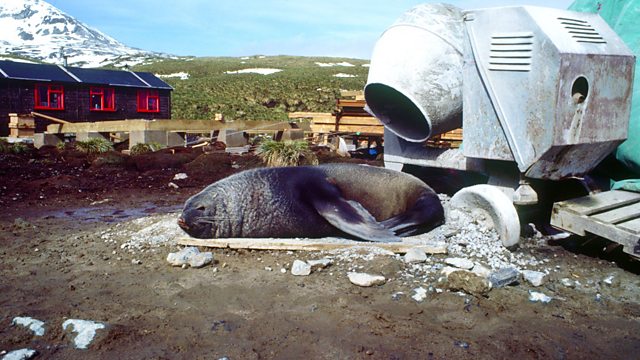Giant Otters in the Pantanal
The fate of the Pantanal rests largely in the hands of Brazil's emerging economy. Can we be optimistic about the future of the Pantanal and its resident giant otters?
The Pantanal is a huge wetland which lies predominantly within the borders of Brazil. It boasts a diverse array of wildlife including the giant otter, which at two meters long is the world's largest species of otter. Protected by its remote location and the difficulty and expense of developing wetlands, the Pantanal has remained largely intact. However Brazil has seen years of rapid economic development, and while growth may have slowed for now, it's only a matter of time before the opportunities the Pantanal holds will be worth the costs. In this episode Monty Don finds out what the future holds for the Pantanal.
Last on
Dr Miriam Marmontel

Miriam Marmontel is an oceanographer at the with an MSc in Marine Biology from the University of Miami and a PhD in Wildlife Conservation from the , in Gainesville.
Twenty years ago she turned her attention to freshwater mammals, and has been working with the five Amazonian genera (manatees, giant otters, Neotropical otters, pink and tucuxi dolphins) since then. She has since lived and worked in TefΓ©, Amazonas state, Brazil, where she is a researcher with the MamirauΓ΅ Institute for Sustainable Development, and leads a research group on Amazonian aquatic mammals, working in the MamirauΓ΅ and AmanΓ£ sustainable development reserves.
In the early 2000s she spent some time in the Brazilian Pantanal, working with giant river otters, and then started a research program on giant otters in the AmanΓ£ Reserve.
Jane Madgwick

A science-based organisation, Wetlands International focuses on building knowledge and facilitating action to manage wetlands for biodiversity conservation, water security, disaster risk reduction, climate resilience and livelihoods. It works with a broad range of partners, including governments, business and industry and civil society organisations to leverage change.Β
Jane’s position in Wetlands International follows seven years working on freshwater and in Europe, Australia and globally as well as 10 years as Conservation Director of a multiple use wetland (The Broads) in the UK.
Before that she was an ecological researcher working in Somalia, Belize, Yemen and Australia. She has particular expertise in the ecological restoration of wetlands and on water resource management policy.
Dr Antonio Ioris

Ioris has a long experience with policy-making and project management in the UK through his work at the , at the UN Economic Commission for Latin America and the Caribbean in Chile and at the Ministry of the Environment in Brazil.
Main areas of research are related to the search for environmental justice in the urban and regional context and the multiple obstacles faced by marginalised communities to influence environmental decision-making.
Professor Lee Alston

Alston’s research interests over the years have focused on the important roles of institutions, beliefs and contracts in shaping economic and political outcomes in multiple domains. Issues examined include the governance and use of natural resources historically and today; the growth of the US welfare system in the US in the 1960s; and the historical trajectory of Brazil from 1964 to present.
In a forthcoming book, Alston argues that since 1994, Brazil has been on a virtuous path. He researched the state of natural resources in the Amazon in:Β , which he co-authored withΒ Gary D. Libecap and Bernardo Mueller.
Broadcasts
- Tue 9 Sep 2014 11:00Βι¶ΉΤΌΕΔ Radio 4
- Mon 15 Sep 2014 21:00Βι¶ΉΤΌΕΔ Radio 4
Learn about habitats with The Open University
Explore the twists and connections of natural life in four different UK habitats.

